We Analyzed 13,000 ESL Jobs. Here’s What We Learned.

We analyzed 13,000 TEFL job postings to better understand the international TEFL job market.
Specifically, we looked at TEFL certification, ESL teacher salaries, and the number of jobs available.
We learned a lot about the TEFL industry.
And hope you do too.
1. China prefers ESL certification but Korea does not.
China is a booming TEFL location right now. But do employers actually care if you have ESL certification or not? Our study reveals that for the most part yes they do.
- 64% of TEFL jobs in China prefer or require teachers to have certification – Of that 64%, employers search for ESL teachers with TEFL and TESOL certificates the most.
- Only 17% of TEFL jobs advertised for Korea even mention certification – South Korea has the third most international ESL job openings, and only 17% of jobs advertised for Korea even mention ESL certification.
Regardless of your situation, TEFL certification can give you the boost you’ve been looking for in teacher training. If you’re going to teach English in China or Japan, these countries prefer teachers who are certified.
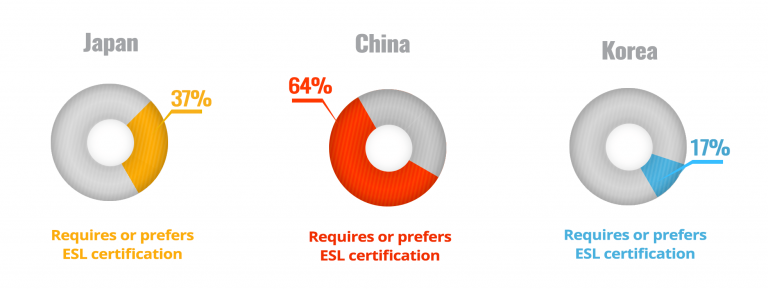
2. TEFL certification costs vary extraordinarily
How come ESL certification costs vary so much? In most cases, TEFL certification costs depend on the classroom format. If it has a classroom component, its costs instantly increase. But when it’s completely online, you end up paying less than half.
Knowing that TEFL certificates are valuable for teaching English in Japan, China, and other countries, a growing number of job offers require a minimum amount of hours for in-class training. This makes online TEFL certificate courses not as useful as in-classroom options.
With this said, there are tons of schools out there that don’t recognize any difference between TEFL certification, whether it’s online or in-class. Actually, the majority of English schools don’t care too much about where you got your TEFL certificate from. After all, it’s all about what you get out of it, and not your future employer. Let’s not forget that what you do matters to people probably more than you realize.
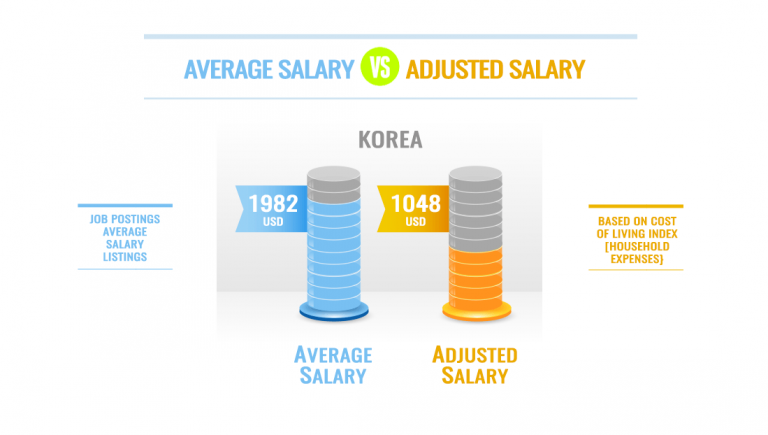
3. Hong Kong offers the highest TEFL salaries
Hong Kong outranks all other countries we studied in TEFL teacher salaries at about 24,400 HKD (3140 USD) per month. This is 23.6% more than Japan which offers an average salary of 263,000 yen (2400 USD). Knowing this, we have to examine living costs in both countries.
While the cost of living plus rent index is about 81.9 in Hong Kong, it is significantly lower in Japan at about 57.6. Both of these values are relative to New York, with New York being a perfect 100. But we found the majority of TEFL schools would cover housing costs in both countries.
When you take away rent from the cost of living, this makes Hong Kong the ideal location for saving money. In reality, everything is relative to what your school will provide for you. Further to this, it depends if you’re living in an urban or rural area. More in the Middle East, Saudi Arabia, and the United Arab Emirates (Dubai) had the highest salaries but found them to vary significantly across the job postings.
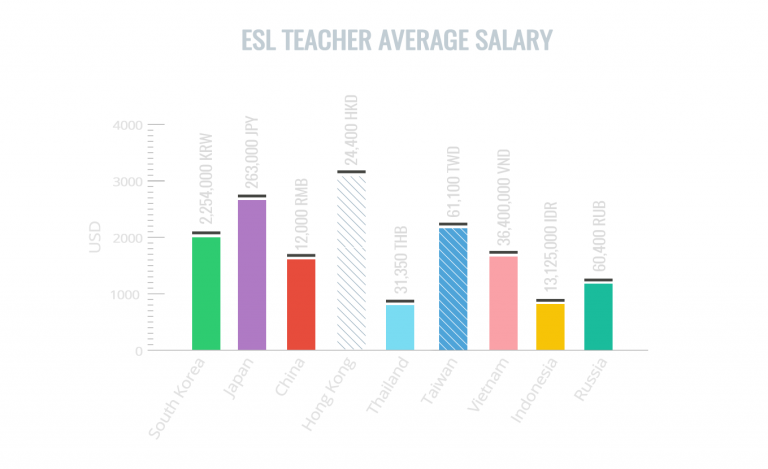
4. CELTA is the most rigorous type of certification
What is the optimal choice for TEFL certification? There are several types including TEFL, TESL, and TEFL. But the most rigorous out of all of them is CELTA (Certificate in Teaching English to Speakers of Other Languages). If you have a strong desire to teach as your career in the future, then CELTA certification fits your goal like a glove.
While TEFL and TESL come in many different flavors (online, and in-class), CELTA has the most consistent curriculum. For example, CELTA certification puts you in front of a class giving you practical teaching practice. Instead of teaching just theory, CELTA evaluates your skills with 120 in-class hours, four 1000-word assignments, and 6 hours of teaching practice. You can create ESL lesson plans and lead ESL conversation classes with confidence.
Besides, what good is a theory when you can’t put it into practice? CELTA helps prepare you to become the most effective teacher abroad compared to the other types of certification. Knowing all this, why do employers abroad prefer CELTA the least? (see #6 below).
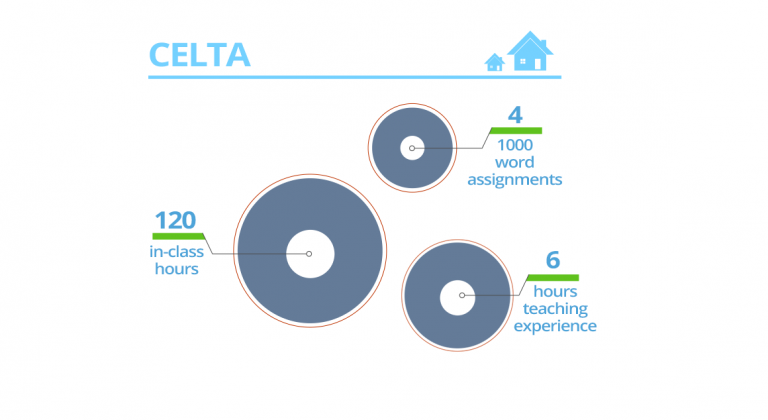
5. China has the most TEFL job postings
I don’t know what it is: Is it because of its 1.2 billion population and growth in wealth over the years? Is it how education is deeply ingrained in Chinese culture?
Either way, China is bursting at the seams with TEFL jobs. Out of 13,000 ESL job postings, a whopping 41% were for China. In other words, 2 out of 5 international TEFL jobs are from China. There is no shortage of TEFL jobs in China even during the pandemic. There are a lot of TEFL job opportunities to teach in South Korea and Japan as well.
And not only is the average salary gently increasing in China, but the cost of living is still extremely reasonable. Despite the negative feedback from some TEFL teachers in China, it will continue to be an intriguing TEFL destination for the next couple of decades.
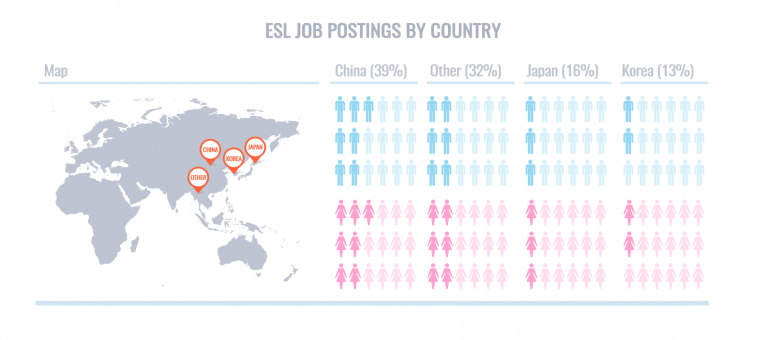
6. TEFL certifications are the most popular
Any type of ESL certification gives you an advantage when you want to teach English abroad. At the end of a certification program, you should have plenty of ideas for ESL worksheets and ESL games to keep your students engaged.
But our study reveals that TEFL certificates outrank all other types. To be honest, we don’t really know why. Unlike CELTA certification, TEFL is not regulated by an overarching committee. This means that any organization can package up its own TEFL certificate program.
For a CELTA certificate, you’ll often do a full course load with a bit of teaching practice, but this may not be the case with TEFL. There are online TEFL courses and face-to-face classroom courses as well. It could be all theory-bad or give you hands-on training.
This unpredictability makes TEFL costs fluctuate. Not only that, but it doesn’t really help standardize the industry. That’s why you often hear about TEFL scams but it’s unheard of with CELTA. But the numbers speak for themselves. TEFL outranks all types of ESL certificates for demand, with TESL and TESOL certification as a close second.
TEFL Jobs and the Industry
Now I’d like to hear from you:
Which result was most surprising to you?
Or maybe you have a question if you are going to teach English abroad.
Either way, leave a quick comment below right now.
